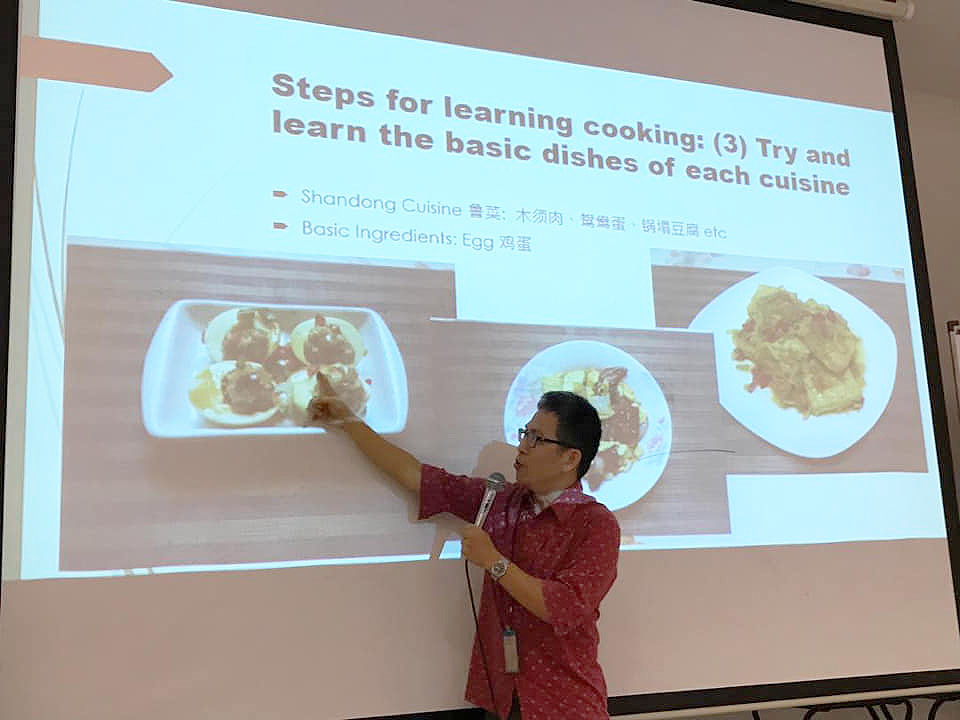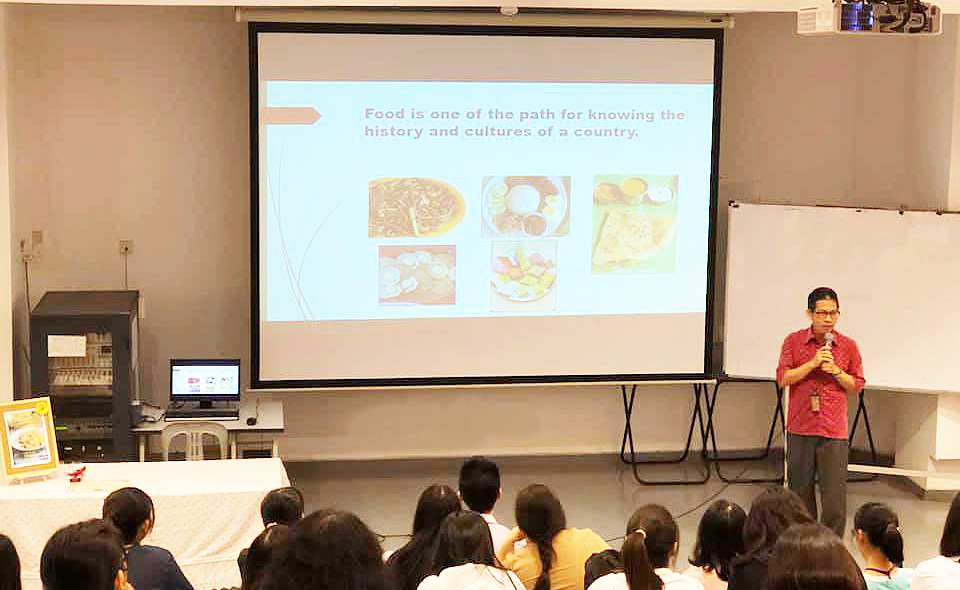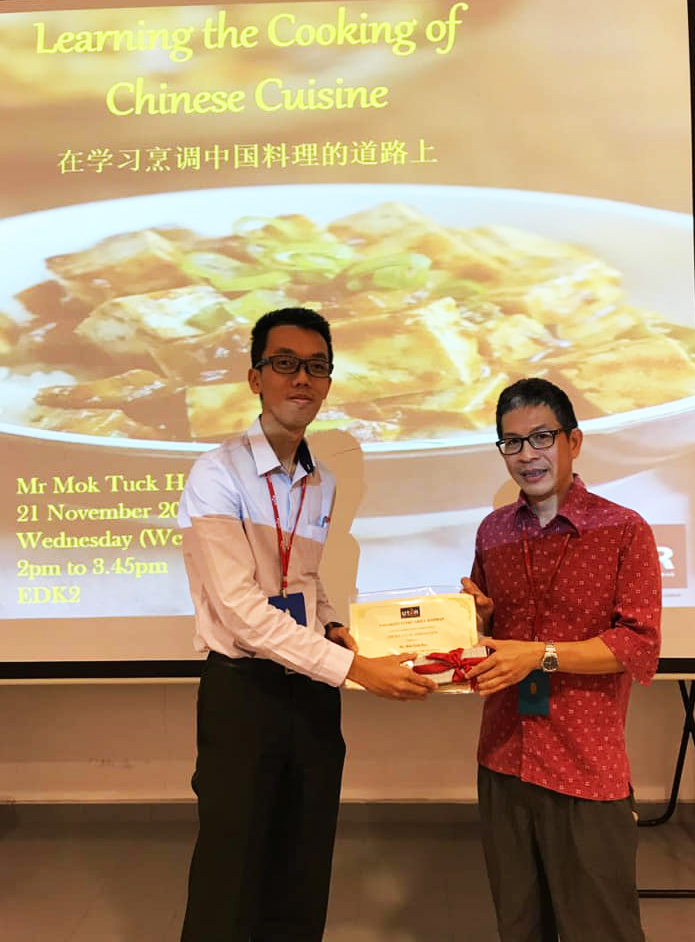

Mok explaining the steps to learn cooking
“Food is one of the paths for knowing the history and cultures of a country,” said Institute of Chinese Studies lecturer Mok Tuck Hau, at the “Way of Learning the Cooking of Chinese Cuisine”, organised by the Centre for Foundation Studies (CFS) Kampar on 21 November 2018 at Kampar Campus.
As part of the initiatives by CFS Kampar to broaden students’ horizon on Chinese cultures and traditions, the talk also aimed at providing participants with information and insights about the history and evolution of Chinese cuisine, as well as to encourage participants to uphold traditional recipes. With over 22 provinces and 56 distinct ethnic groups in China, Mok explained that the main food in North China is noodles, whereas the main food in South China is rice.
He explained that during the Ming Dynasty, some foods were imported into China, which were tomatoes, corns, pumpkins, garlic and chillies, and from the variety of food came the eight main Chinese cuisines of China. The eight main cuisines were Shandong, Anhui, Guangdong, Sichuan, Hunan, Zhejiang, Jiangsu and Fujian Cuisines.
Further into his talk, Mok taught participants steps to learn cooking, with the first step finding out the meaning of cooking. Mok used himself as an example and explained that cooking to him means being able to enjoy meals with loved ones and a time for gathering. The second step involved using technology and social media, such as Youtube and Facebook to learn various cuisines. He also said that the participants were very fortunate because vast information was made available for them. Step three involved the actual act of cooking, where the speaker advised the participants to start-off with simple or basic dishes that they can easily master. He also highlighted the importance of getting suitable ingredients for the dishes and preparing their ingredient list.
“Another way to learn about the dishes and culture of a certain food is to visit restaurants and taste the food prepared by the experts. The chefs may change their menu time to time, which also means customers will be able to continuously try various dishes or cuisines,” explained Mok.
At the end of the talk, CFS Kampar Deputy Director for Student Affairs and Development Lim Khiew Loon presented a token of appreciation to Mok.

Mok highlighting the importance of food to understanding cultures

From left: Lim presenting a token of appreciation to Mok
© 2019 UNIVERSITI TUNKU ABDUL RAHMAN DU012(A).
Wholly owned by UTAR Education Foundation Co. No. 578227-M LEGAL STATEMENT TERM OF USAGE PRIVACY NOTICE